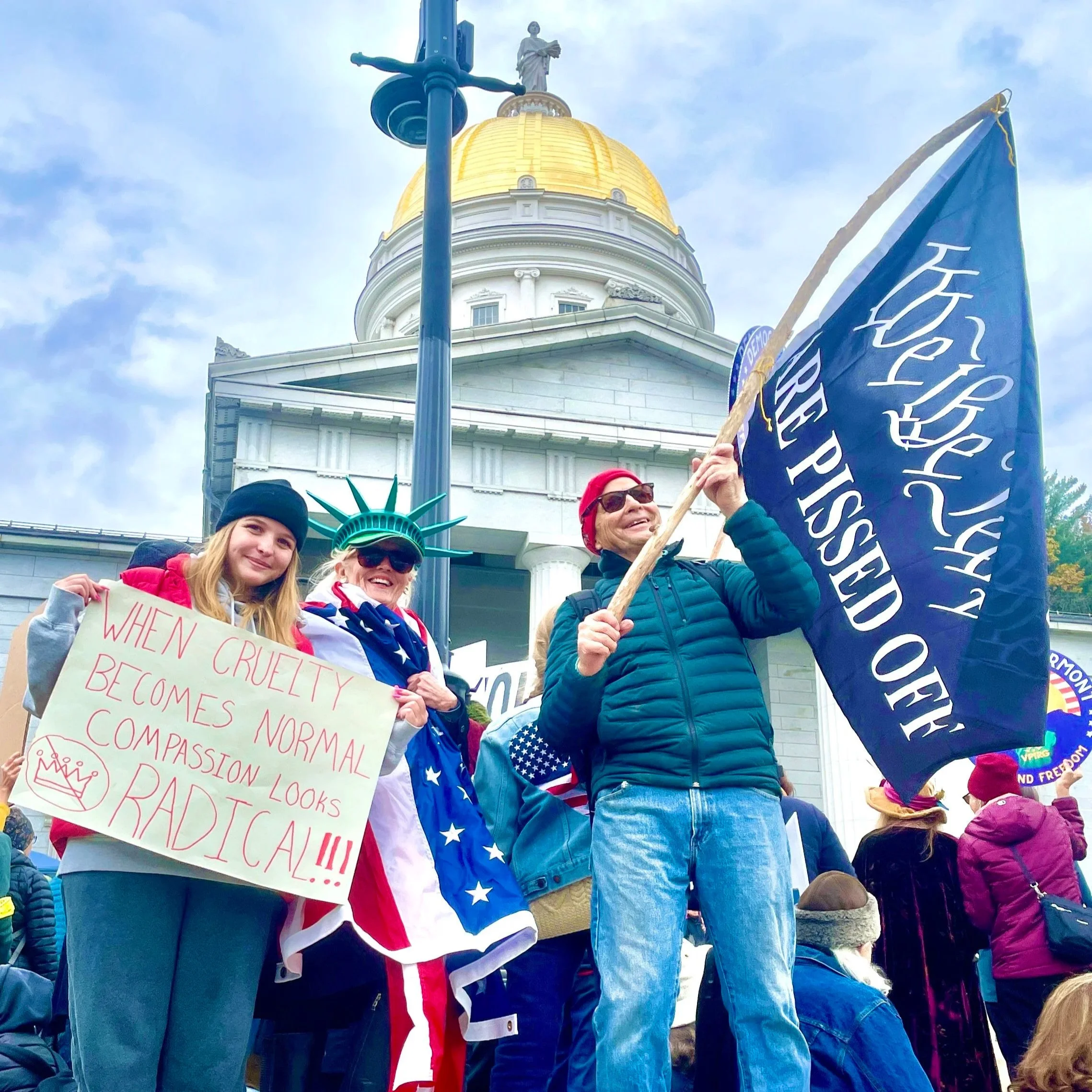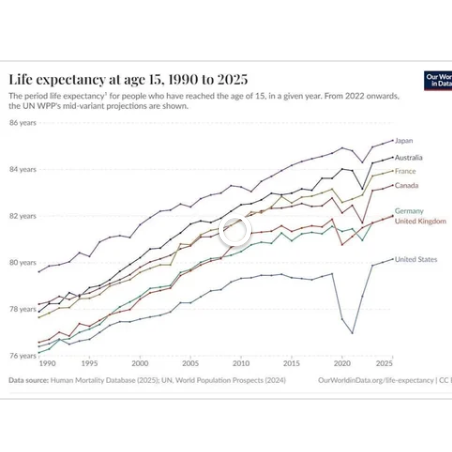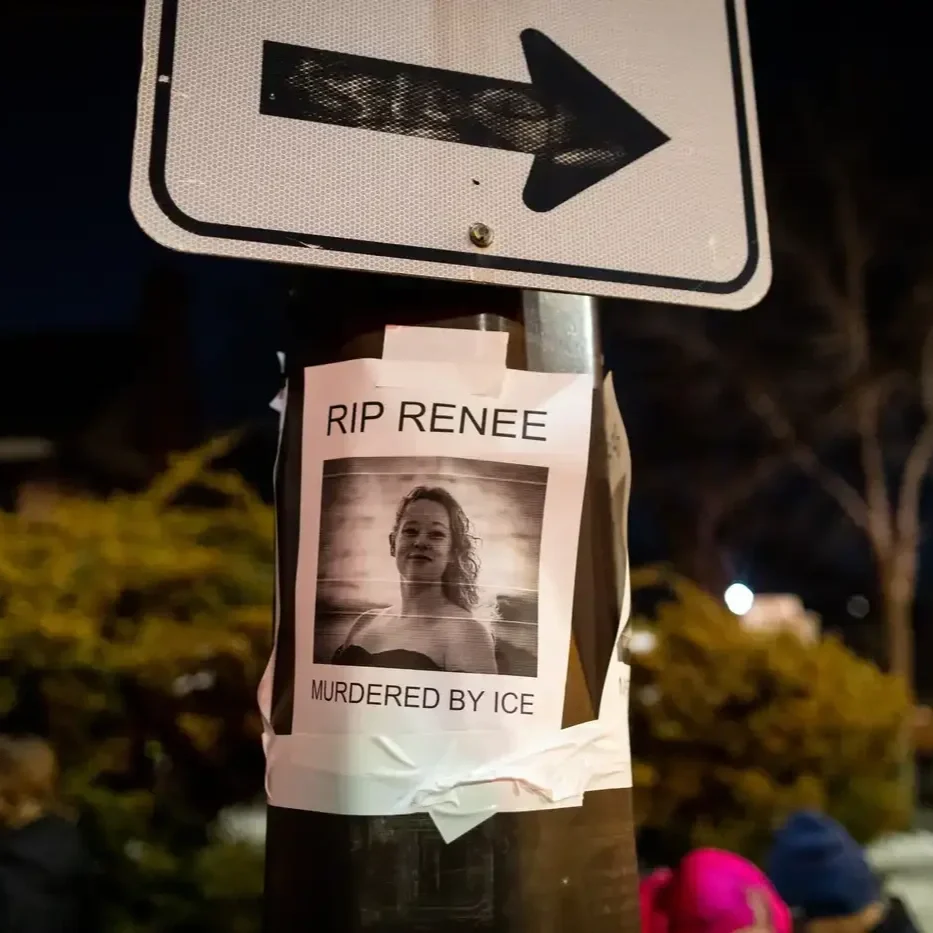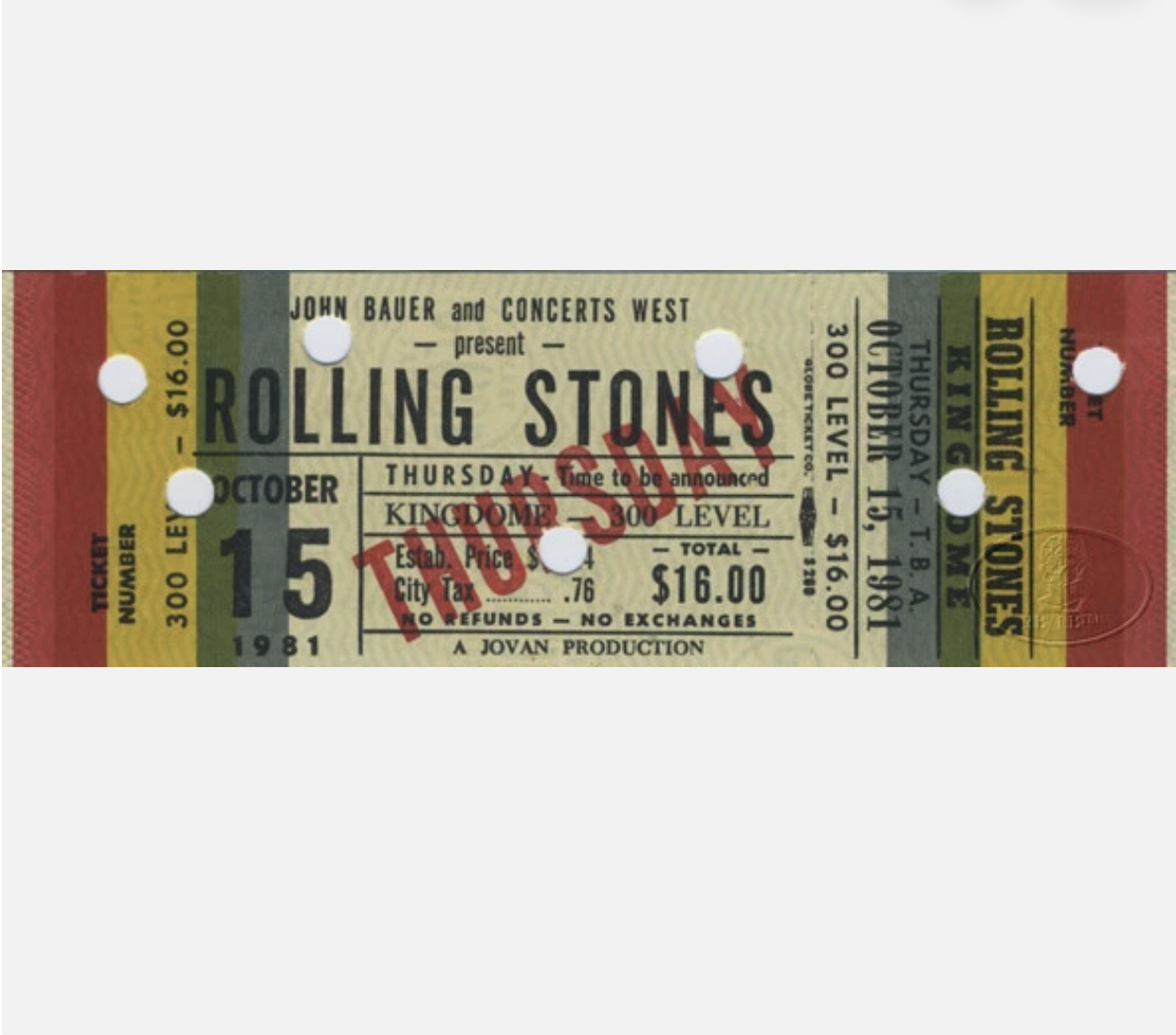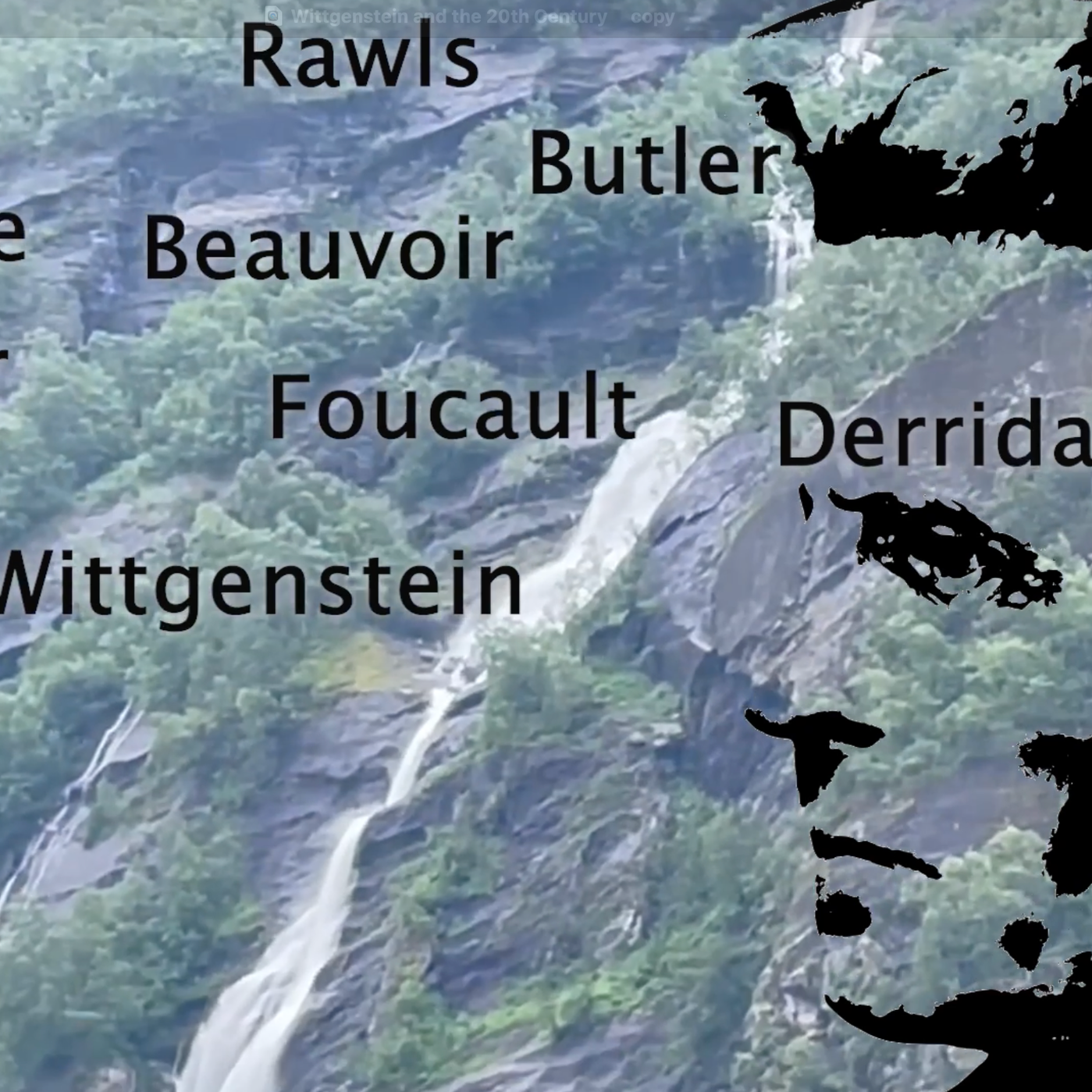Do You Ever Recover From Nearly Dying?
Here is the amazing thing: the other week was the second anniversary of my almost dying … and I didn’t notice it at all. I hadn’t realized the date had come … and gone.
I didn’t remember to mark the moment. I didn’t stop to look back. I didn’t pause to consider how far I had come. I didn’t announce the anniversary and celebrate my recovery with my family. The date passed no differently than the day before or the day after.
It was only sometime later, after the anniversary of my nearly fatal heart attack had gone by without so much as a thought, that it hit me and I thought how remarkable it was that it wasn’t remarkable. …
not everything sucks these days
We all do it—complain, much as our own parents did, about all the things that aren’t as good as in “the old days.” Technology has spoiled us, ruined communication, killed civility and rudimentary politeness.
And most of that is true, of course. But let’s face it, not everything sucks these days.
Admit it, don’t you just love it…
When you’re trying to summon the name of that handsome actor in that famous war movie, and it’s driving you crazy as you try to do it without help, and you can google it instead of waiting till morning to call the public library reference desk. …
Our Greatest Hits: When Our Music Collections Melt Into Air
From time to time, we’re going to dig into our archives—yes, we have archives!—and republish one of our favorite stories. Here’s the first one.
This is a complaint – about modern times, on behalf of my music collection.
I’m not often inclined to quote Karl Marx and Friedrich Engels. But, when it comes to the song “I’m Free” by the Rolling Stones (in particular), to the various iterations of said music collection (in general) and to the experience of my generation (in even-more general), Marx and Engels were onto something. “All that is solid,” as they put it, does indeed “melt into air.”
the boot heel of authoritarianism
My phone rang at 6 a.m. in the morning. I ignored it. When I clicked on my voicemail, I heard the voice of a man saying “Melinda, we know where you are, ICE is coming for you, we are at your door, you cannot hide.”
I thought it was a joke. But after a few minutes I realized this was no joke. I immediately blocked this unknown caller. My next reaction was anger … then defiance.
I have written before about the rise of authoritarianism in the United States, but it is no longer rising—it is here …
Jeans Part II: Culture Changed, Stayed Changed
The way Americans dressed—and in due time the way the world dressed— started changing about two thirds of the way through the 20th century. And our generation was in the forefront of that revolution.
I was no rebel, and anything but a fashion leader, but I actually won a tiny little battle in this revolution. As a senior at my small suburban high school in 1967, I believe I was the first to challenge the dress code and wear dungarees to school. The assistant principal just smiled. There were thousands of such victories at thousands of high schools.
And that war has stayed won for a remarkably long time. . . .
For “Jeans Part 1: Dressing Down,” click here.
who could have believed all this?
On the Saturday before the 2016 election, a good friend, also named Neil, died. He died before all … this.
He was an educator, a student of history, and extremely well-versed in the American story. And I wonder now, today, if he were somehow miraculously to come back, somehow to materialize in front of me right this moment, how could I possibly explain what has happened over the last decade? How could I explain what has happened over the last week?
How could my friend, who like the rest of us lived through wars and McCarthyism and the Cuban Missile Crisis and the first man on the moon and the Kennedy assassination and the advent of computers and Nixon’s fall and the Miracle Mets and so many other unprecedented events, how could he imagine the unparalleled occurrences of these Trump years? …
waiting on the snow
As we sit here waiting for the advent of the winter storm of the year or the winter storm of the decade or the winter storm of the century, whichever one it is, we recognize that meteorology hasn’t changed much. But we have.
Snowstorms used to mean throwing snowballs at each other, building snowmen and maybe — if there was more than a few inches of snowfall — even creating a snow fort. It meant taking out the sled, if you had a sled, or just finding a cardboard box we could open up and use to slide down that big hill over there.
It meant getting your gloves all wet — did we call them mittens? — and drying them on the radiator.
Maybe most important, snowstorms meant no school tomorrow! It meant homework was suddenly optional. Plus, you could have hot chocolate for lunch.
Not so much today. …
the urge to feel elsewhere
This is an excerpt from the Substack of The Archivists, along with Stephanie Valente. You can read the full post at their site, here.
Modern life has become compressed. Our days are siloed with density where the hours are filled with performance and surveillance. Our notifications stack. The objects accumulate. Content and communication proliferate. It’s a world where every desire is immediately answerable, every pause quickly filled. Under these conditions, the idea of escape begins to feel exhausting in itself.
Which means…
…what if we could let go at any time?
…what if escape didn’t require distance?
…what if it wasn’t dependent on scale?
Tiny escapes (aka, moments of deliberate elsewhere) are refusals of spectacle and the myth of optimization. Tiny escapes refute the belief that relief must be earned through effort, expense or reinvention.
They operate quietly and because of that, they’re easy to overlook. …
A Book Review: Can Judaism Be Saved? Its Future After Gaza
More than two years after a day that changed everything and nothing, Israelis, Palestinians, Jews, Arabs, and Muslims are all coming around to the point of view of the Civil Rights pioneer Fannie Lou Hamer, who in 1964 told Harlem: “I’m sick and tired of being sick and tired.” But in order to figure out where this will all end, and if it will ever end, we might ask ourselves where it all began. That doesn’t mean October 7, 2023. For that task, we have no better guide than Arthur Green, a legendary figure in American Judaism who for decades has straddled tradition and progress, scholarship and creativity, belief and practice, and authority and invention.
The Worst Times of Our Lives, Revised
About four months ago, spurred by the myriad dreadful actions of Donald Trump and his administration, we tried to put the awfulness into context in a story headlined “The Worst Times of Our Lives as Americans.”
We reckoned then, that as bad as things had been, they did not—at least not yet—qualify as the worst times in the United States in our lifetimes. We rated the first eight months or so of the first year of Trump’s second term as only the third worst period of our collective lives.
Times have changed. They’ve gotten worse.
As we complete this week the first full year of the second term of Trump as president, we now believe this is, indeed, the worst period of our collective lives.
Here are our revised rankings.
Homeowner’s lament
It’s the American dream—to own your own house. It was our dream. Now I’m starting to think that, at a certain age, it can become an American nightmare.
And now I’m also starting to maybe better understand why so many friends our age have recently moved from houses to apartments or to town homes or retirement communities. They’d rather live some place where they are not responsible for the upkeep—or the expense of the upkeep. Maybe they, too, have gotten tired of blowing leaves or shoveling snow or patching the driveway or draining the water heater or oiling the garage door. Or paying for someone to do it.
Maybe they have understood, apparently much earlier than we have, the not-so-hidden meaning of that classic sociological work, “If You Give a Moose a Muffin.” It’s the sequel to that groundbreaking treatise “If You Give a Mouse a Cookie.” It was the wonderful children’s book we used to read to our kids all the time. We had no idea it would prove so prescient. …
what’s going right in america
This is an excerpt from a Substack post by the economics blogger Noah Smith. We recommend you read the full version on his site, Noahpinion, here.
Our politics is dysfunctional and our media landscape resembles a demon-haunted wasteland, but underneath the surface, I see signs that our society is starting to knit itself back together after the unrest and chaos of 2014-2021. Health is improving. Violence is falling. Americans are starting to use technology more responsibly. Some of the economic sclerosis of the pre-pandemic years seems to be falling away.
I suspect that there are “macrosociological” forces at work. To my knowledge, sociologists haven’t really modeled a cycle of aggregate social division and health,1 but if you look at events like the collapse of the USSR and the decade of violence and self-destructive behavior that followed in Russia, or the multi-decade rise in pro-social behavior around the mid-20th century in America, it’s hard to avoid the suspicion that such forces exist.
But I’ll leave the grand theorizing for another day. …
Renee Good: trust your own eyes and ears
I keep trying to move on, to write about something less unsettling. But I can’t.
I am haunted by this vibrant, 37-year-old mom, shot dead in broad daylight in a family Minneapolis neighborhood and then dismissed by Donald Trump and all his bullies as some kind of radical agitator.
I am sickened by a mainstream news media that makes believe it is practicing quality, “fair” journalism by doing things like interviewing a Democratic congressman and a Republican congressman (Washington Post) for their “interpretation” of what they each see on the amalgam of videos in the minutes and seconds before Renee Nicole Good was shot dead at point-blank range.
Look at the videos yourself. Trust your own eyes and ears.
The brainwashing in this country has to stop. It’s so pervasive that people are hiding from themselves, looking for a way to doubt their own senses. Not everyone, of course. I’m heartened that more than 300 people stood out in my town Saturday in Renee Nicole Good’s honor. Tens of thousands more did so nationwide.
But what about the millions who slept in, bought a latte, watched football—looked away? …
Renee Good: the song Remains the same
I am standing up typing this because sitting down hurts my back and I am sick and tired of hurting. I am writing this through tears.
Bobby Weir just died and the Dead are blasting on the stereo and I am sipping green jasmine tea and trying to gather my thoughts as way too many buttons are being pushed in my old, tired brain. Neil Young wrote his famous song “Ohio” after four students were killed by the National Guard on May 4, 1970. They were protesting the Vietnam War. They were murdered. It was a turning of the tide for our generation because it sent a bolt of enlightenment across our country.
Fifty-five years later, on January 7 of our new year, Renee Nicole Good was murdered by Jonathan Ross, an agent of our Immigration and Customs Enforcement Agency. It’s an agency under Trump that has been given license to terrorize American citizens. We are watching what I believe is an effort of our government to control our citizens by spreading terror, putting people in cages and even murdering innocents without any purpose except to spread fear and curtail our freedoms. …
Jeans Part I: Dressing Down
A lot of us believe something significant happened to culture in the 1960s and 1970s, when most of us were coming of age.
Part of that something—and the subject of this article—was a rejection of the notion that we should aspire to act and dress as much like the upper classes as we could manage and afford; a rejection of the notion that we should look—by donning dresses or suits, however well worn—as much as possible like ladies and gentlemen; a rejection of the notion that we should dress up . . .
Still More of What We Miss
Paper concert tickets. Thick enough to survive a wallet and you could keep them for years as a memento
Not constantly monitoring yourself, worrying about caffeine or sugar or steps or sleep
Being unreachable for entire afternoons . . .
Could a Murder be a turning point?
Let’s acknowledge, first, that there is a healthy percentage of our population that will support him and this administration no matter what he does, no matter what countries he attacks, no matter what crimes ICE commits, no matter what obvious lies spew forth from Washington. After all, in 1974, when scandal-scarred Richard Nixon resigned the White House, a quarter of the population still approved of his performance as president.
But in just the last week, there was, first, the brazen attack on Venezuela, which had to shake those who may have believed Trump’s promises against foreign entanglements. And then, and most important, there is the murder of Renée Nicole Good by Trump’s rampaging ICE agents.
This was not, after all George Floyd, who some percentage of the white population could dismiss as a black man with a criminal record. This was not Kilmar Abrego Garcia, a brown man who wasn’t born in this country.
This was a middle-class white woman. …
Remembering Radio
At a dinner party recently, a neighbor told me about the radio station WXPN (“Vinyl at Heart”), a member-supported station affiliated with the University of Pennsylvania. A couple of days later, I checked it out. Their program list was interesting and included programs like “Funky Friday” and “Highs in the 70s.”
The station was in the middle of its annual countdown of the 885 best cover songs. I happened to catch a really nice cover of the Velvet Underground’s “Sweet Jane” by Two Nice Girls, a band I never heard of. I heard The Brothers Johnson’s “Strawberry Letter 23,” a song I had not heard in nearly 50 years, that took me right back to my junior year of high school. I loved hearing the DJs comment on the songs they were playing.
I almost never listen to the radio anymore. . . .
Reading “1984” in the Age of trump
. . . Why did I react so differently to reading “1984” now as opposed to when I was a young adult decades ago?
We live in the Age of Trump. His attempts to bend truth and reality to his liking remind me of Big Brother and the Party in “1984.” Trump’s recasting January 6, 2021, is Example No. 1. We all (including prominent Republicans) watched horrified as Trump’s MAGA minions stormed the Capitol and smashed its windows, assaulted police officers, paraded a Confederate flag through the Rotunda and threatened to lynch the vice president and to kill the speaker of the house. Images of the insurrection were embedded in our memories.
And yet, within weeks, Trump proclaimed his MAGA thugs acted like patriots when they tried to destroy our democracy . . .
Wittgenstein & the 20th Century: A video
The case can be made that the great intellectual struggle of the 20th century was the struggle of variety, indeterminacy, pastiche and, most of all, humor to subdue often stifling dogma, rigid formulas, pat beliefs, inevitably accepted truth--the struggle, as it might be put, of uncertainty to subdue certainty. One of the more important arenas in which this struggle took place was the mind of the man some consider to be the greatest philosopher of that century: Ludwig Wittgenstein.
His father was one of the richest men in Europe. The only house he ever owned he built on a cliff in Norway, where much of this video was shot. Three of his brothers killed themselves. And, oh yeah, Ludwig Wittgenstein is often considered the most significant philosopher of the 20th century.





